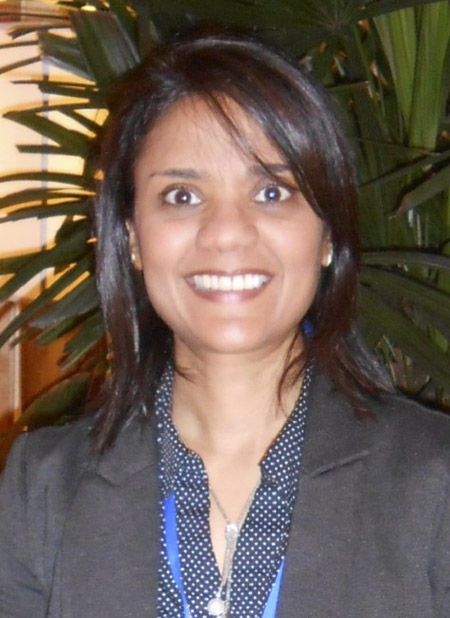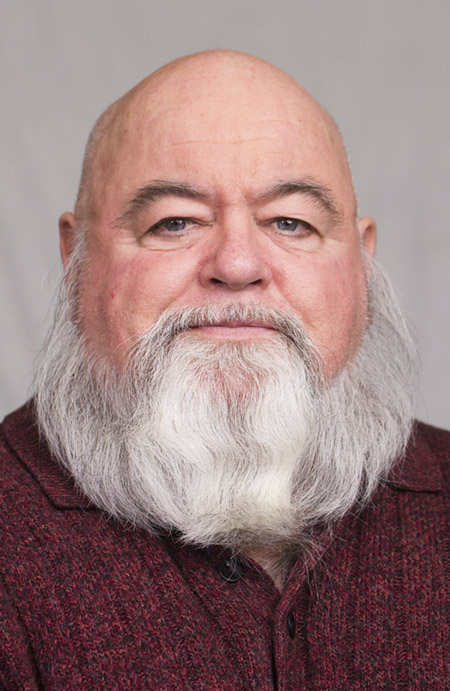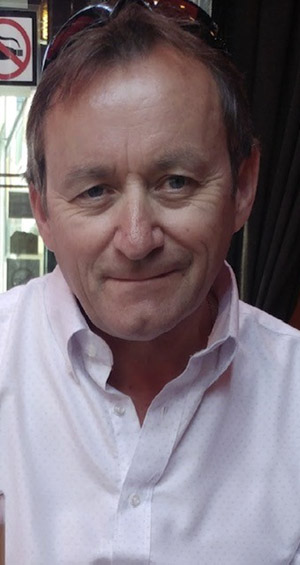
Dr. Wendy Darr

Dr. Allister MacIntyre

Dr. Damian O’Keefe
Dr. Wendy Darr, Dr. Allister MacIntyre, Dr. Susan Dowler and Dr. Damian O’Keefe, Psychology in the Military
Psychologists in the military play many roles, from personnel selection to designing training to a number of therapy roles. We spoke with Dr. Wendy Darr, Dr. Allister MacIntyre, Dr. Susan Dowler and Dr. Damian O’Keefe to learn more.
In the mid-1980s, “a real military exercise was taking place in Europe, involving countries from all over the world. The West Germans were put in charge of ‘psychological warfare’. Although it was a training exercise and everyone involved knew that it wasn’t a real war, they put a single pamphlet together that ground the entire exercise to a halt. They waited until about late in week two of this exercise. The soldiers who were ‘front line’ had been sleeping in mud, they were filthy, and they were tired. If they were sleeping at all, they were sleep deprived – basically feeling absolutely miserable. The pamphlet the West Germans dropped looked exactly like an advertisement from a nearby pizza parlour – offering to deliver free pizzas to the rear echelon folks - the medics, the supply people and those who weren’t on the fighting end. When the soldiers in the field saw that while they were living in filth and eating ration packs, their fellow soldiers were back there eating free pizzas, they said screw it and they quit. You wouldn’t do that in an actual wartime scenario, but in this peacetime scenario this huge discrepancy between how they were living and how they perceived others were living was enough for them to say they weren’t playing anymore.”
Dr. Allister MacIntyre spent 31 years in the Canadian Armed Forces as a Personnel Selection Officer. He has a PhD in social psychology, but his dissertation was more concerned with work behaviour – culture, climate, and leadership in the Canadian Air Force. When he was still in uniform, he spent time in West Germany completing their army’s psychological warfare course for NATO Officers, and now brings some of the principles he learned there into the influence and persuasion course he teaches at the military college.
When many of us think of ‘psychological warfare’ we think of the US military playing Van Halen at full blast for days on end to torture Manuel Noriega out of his fortress in Panama. (Playing Panama by Van Halen in this scenario was, in this writer’s humble opinion, cheesy and way too on-the-nose.) Recently the so-called “freedom convoy” that gridlocked Ottawa for three weeks was accused of ‘psychological warfare’ by politicians, judges, and law enforcement for constantly honking horns and blaring sirens that disrupted the sleep patterns and daily lives of residents in the area. Dr. MacIntyre says the general concept is a lot broader than that.
“’’Psychological warfare’ is not viewed as a discipline in psychology, it’s much more of a military discipline that uses psychological principles. It involves things like propaganda – to influence your enemies and also to gain support on the home front. People think psychological warfare is all about doing something to the enemy, but a lot of it is garnering support from your own nation to say ‘we’re really doing some legitimate work here’. Some of the things I learned on that course were really quite fascinating, in terms of getting to know the culture of the group you’re trying to influence so you know what triggers to use to get them to sway one way or the other.”
Dr. Damian O’Keefe has his PhD in Industrial/Organizational Psychology, studying human behaviour in the workplace. Like Dr. MacIntyre, he has 30 years military service, and he currently works as a civilian Defence Scientist in the personnel research and analysis division of the Department of National Defence where he conducts applied research to support personnel policy for the Canadian Armed Forces. He’s quick to point out that Canadian psychologists do not engage in psychological warfare.
“Almost all of us would have done our psychology degree in Canada, and so we all follow the CPA code of ethics. Do No Harm is the fundamental principle by which we guide ourselves.”
The most common job for a uniformed psychologist in the Canadian military is as a Personnel Selection Officer. Psychology has been part of the Canadian military since the Second World War, when psychologists helped the army come up with an efficient way to choose volunteers who would be taking up a number of different positions within the military. Ever since then, psychologists have been involved in selecting military personnel. You can learn more about the origins of psychology in the military, and the associated jobs psychologists currently do, in a chapter of the Canadian Handbook for Careers in Psychological Science, co-authored by Dr. O’Keefe, Samantha Urban, and Dr. Wendy Darr.
Dr. Wendy Darr is also involved in selection and assessment, and she recently took over (from Dr. O’Keefe) as the Chair of the CPA’s Psychology in the Military Section. She is also a civilian Defence Scientist who conducts personnel research and analysis for the military. Dr. Darr’s research involves developing new selection tools to screen and recruit people who want to become soldiers, sailors, and aviators. She describes the criteria for being accepted into the military in Canada.
“We are largely looking for what 100 years of research shows is the best predictor of job performance, which is general cognitive ability. The Canadian Armed Forces trains everyone, and a lot of that training is expensive. So we want to make sure we’re investing in someone who has the aptitude and the capacity to succeed, especially in some of the more technical jobs. So at the very basic level we’re looking to see if you’re of sound mind and have the ability to learn. The second thing is personality. Do you fit in with the demands of the military environment? We are looking for those who espouse military values. Does someone have the innate ability to succeed in a rules-based environment, to be organized and structured, and to lead when necessary? We’re also looking for people who have what it takes to perform in this adverse environment. Are you emotionally stable? Military training can be tough, so we want to make sure they have what it takes to handle the pressures of training.”
The military relies on disciplines across psychology. They have industrial, organizational, and social psychologists as well as clinical psychologists to help military members who struggle with mental health issues These psychologists work in military health care clinics and certain specialized units. The vast majority of psychologists work in the 31 military health care clinics located across Canada, which include seven Operational Trauma and Stress Support Centres (OTSSCs) and provide mental health services very similar to what is delivered in hospitals. (Also taken from the Canadian Handbook for Careers in Psychological Science.)
Dr. Susan Dowler is the Chief Clinical Psychologist at the Directorate of Mental Health within Canadian Forces Health Services. She is the senior practice leader for psychology, which means she is involved in establishing the practice guidelines and compliance, doing investigations if there are problems, and setting up educational training. Unlike personnel selection officers, clinical psychologists are always civilians.
“As far as clinical psychologists are concerned, they’re not military members, they’re not in uniform. They’re either public service employees or they’re contracted resources. Some other countries have clinical psychologists embedded in units – the US for example does this – but this is generally not done in Canada.”
In January of 1994, Romeo Dallaire sent a now-famous ‘genocide fax’ to the headquarters of the UN, warning that a genocide was being planned in Rwanda. A few months later, the genocide began as between 500,000 and 1,000,000 Tutsis were killed over a period of about 100 days. Dallaire, feeling abandoned and ignored by the UN and having witnessed months of unimaginable horrors, suffered greatly from Post-Traumatic Stress Disorder (PTSD) after Rwanda. He pushed to create specialized mental health services for individuals suffering from operational stress injuries. Dr. Dowler says the first OTSSC was created in 1999.
Clinical psychologists have become more and more involved with the military over the years, and play an essential role when problems present themselves. The stigma associated with seeking mental health help has always been prevalent in society, but especially in the military where, as Dr. MacIntyre says, “people are expected to be strong”. He and Dr. O’Keefe both did tours in Australia, working with the Australian army. They noted many years ago that every single soldier who had been deployed for any reason had to visit a psychologist upon their return to Australia. It was just for a screening, but it eliminated some of the stigma of going to talk to someone because everyone had to do it. Dr. Dowler says there is a similar practice in the Canadian military as well.
“We have had mandatory post-deployment screens for a very long time. Within 3-6 months after deployment, soldiers fill out some questionnaires and have an interview with a clinical social worker. If any information is flagged as potentially problematic, they are referred to mental health services. To see a psychologist you have to be referred from the medical personnel.”
The post-deployment screenings are just part of a process for soldiers after experiencing combat. Psychologists have added another step to make returning to Canada and home life a little easier and more successful. Dr. O’Keefe explains,
“When soldiers come back from overseas deployment, they go through ‘third location decompression’. That’s a two or three day period in which they come out of theatre which has been potentially very bad. They go to a very calm, mostly warm location where they get briefings from people like Susan (clinical psychologists) and other professionals who tell them ‘if you’re experiencing this symptom, here’s what you need to do’. You can’t put soldiers on an airplane and send them straight home from Afghanistan. They need to have time to decompress and to process what happened. And, of course, to get professional help if they need it.”
Psychologists are involved in the military process from the moment someone enlists right up to all the years after they complete their last tour. Helping them train, perform, and heal so that they will be as healthy, adjusted, and emotionally stable as possible when they head out to that pizza party.
